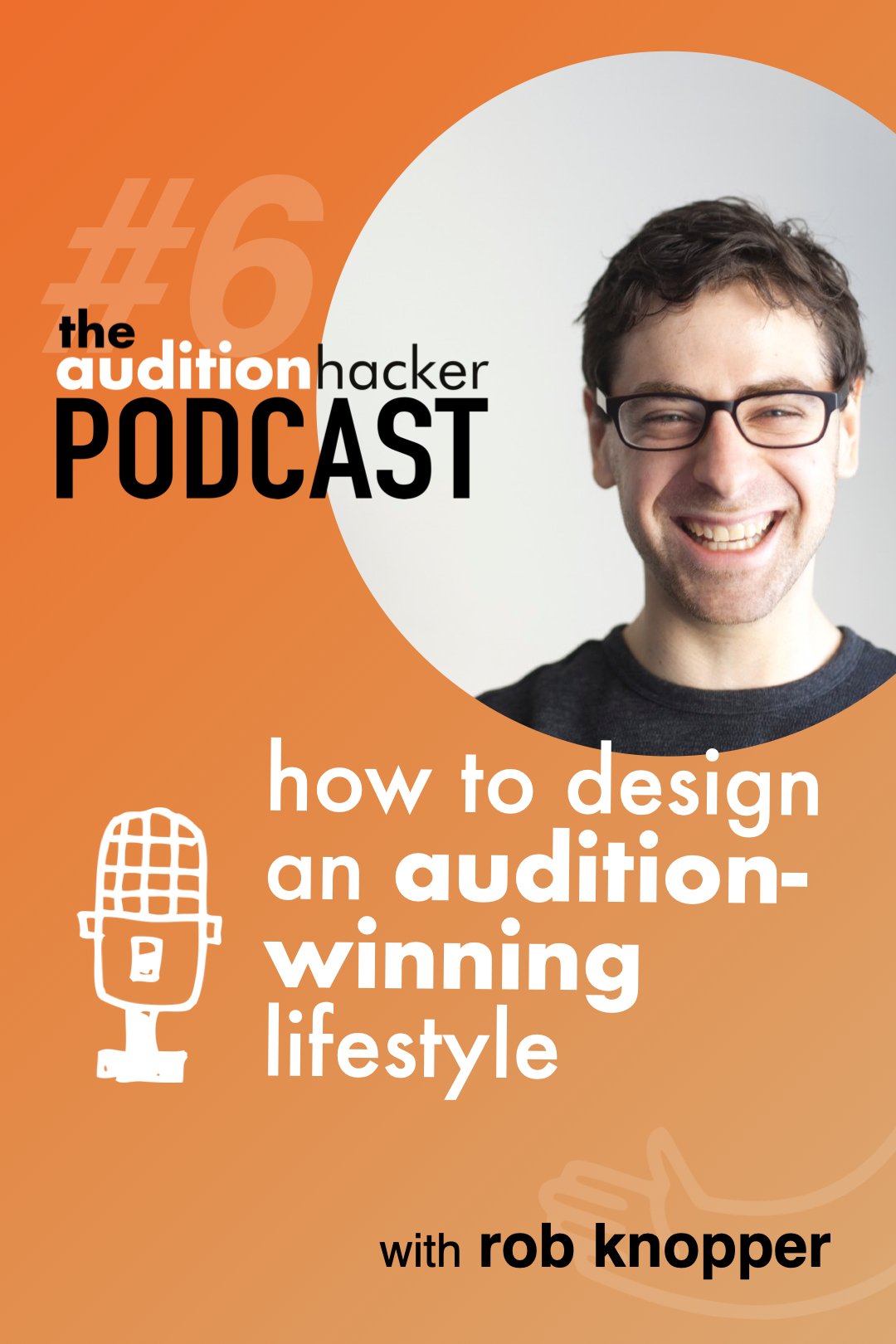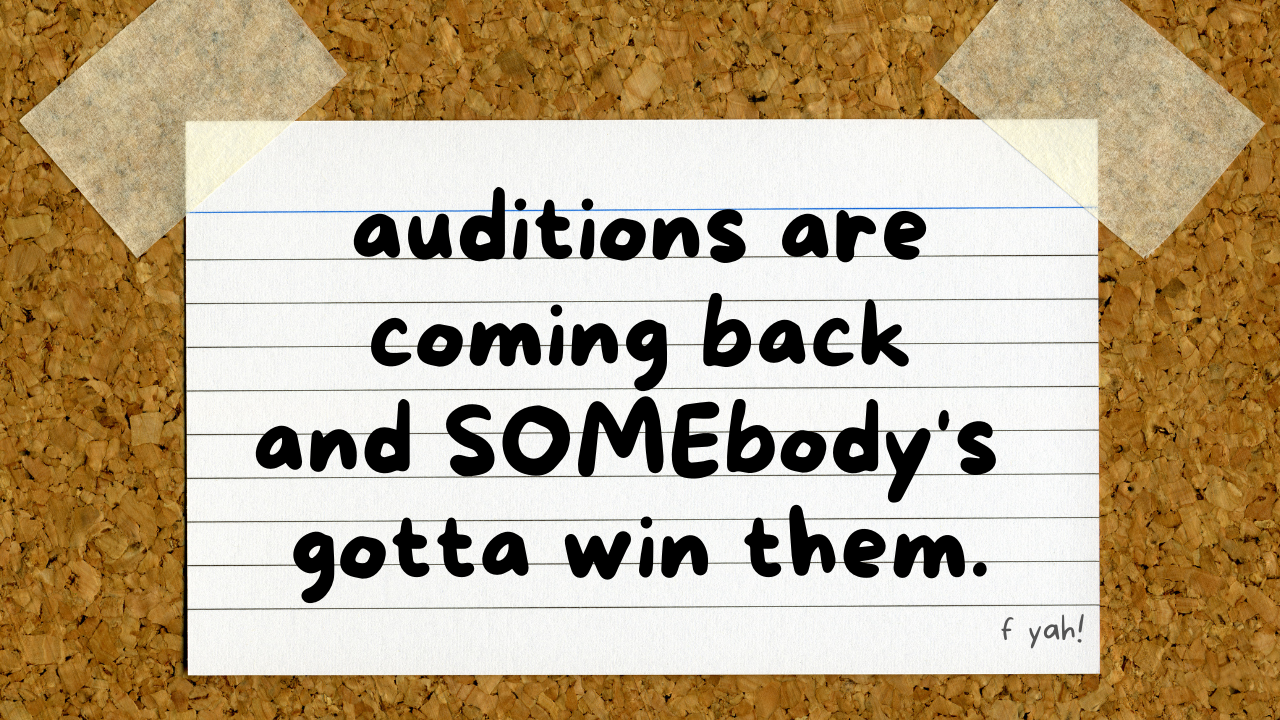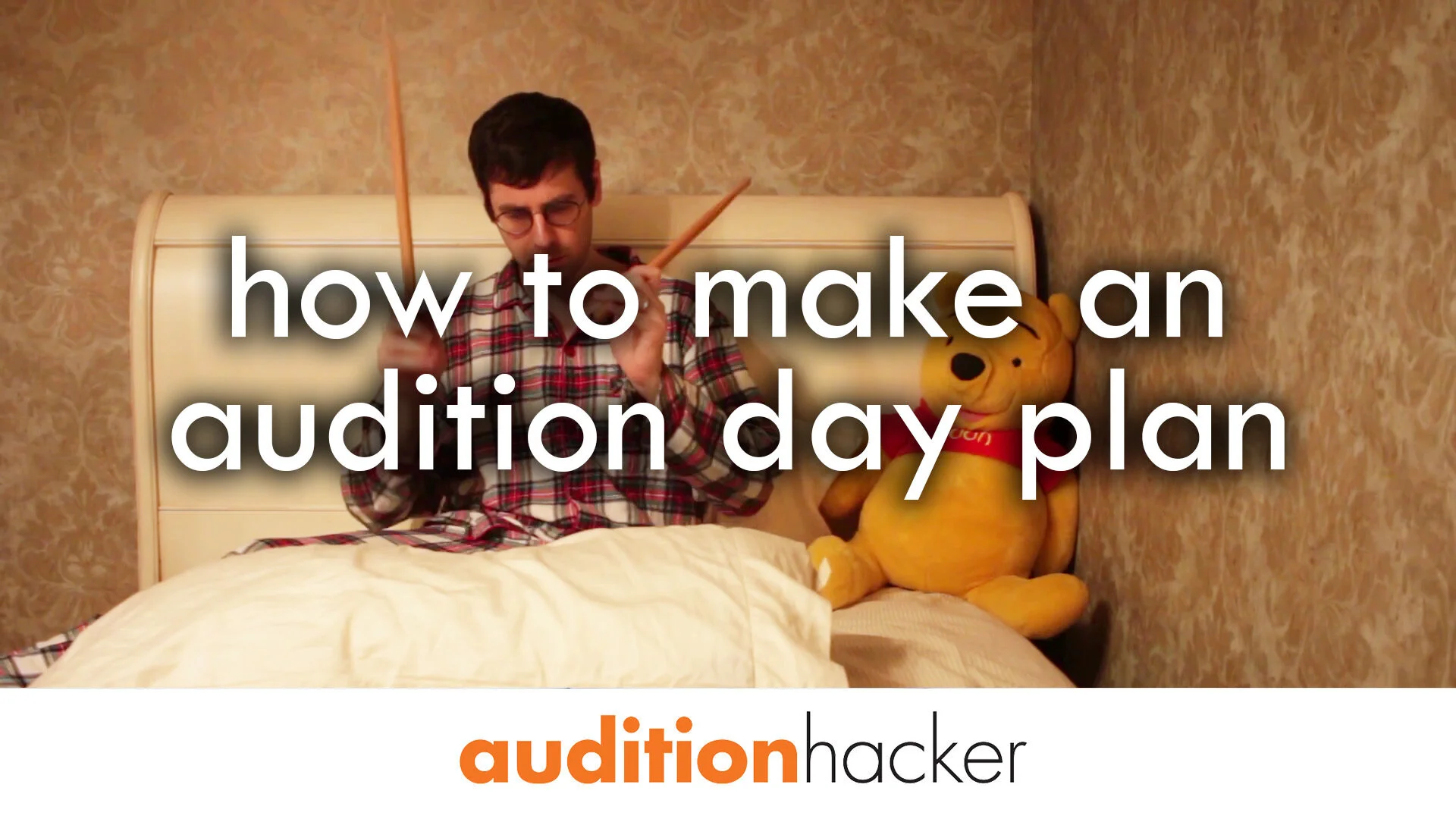it's day 8 of the 12 days of auditions! it's the video series where each day i cover a different topic on how to take auditions. yesterday was day 7: the perfect daily practice session. make sure to join the auditionhacker facebook group to see the rest of them.
here's the video transcription:
you know how when someone’s listening to you play, and they say, “you need to play so that i can hear the orchestra behind you.” and then you have that feeling afterwards that’s like, what are you talking about?!
it can be infuriating, because you don’t know what to do about it. do you just start adding dynamics and phrasing willy nilly? how do you find out what’s appropriate or acceptable for that piece? and how can you have confidence that your interpretation is even valid?
well it turns out there’s a way to gain authority about an excerpt and to infuse it with musicality, even if you’ve never played it before in orchestra.
want to learn how to prepare for auditions?
i've got the perfect thing for you. enroll in my new online mini-course called how to advance in an orchestra audition 101. it's free and it'll be delivered to your email starting on november 10th.
first of all, you need to do this in the right order.
it’s not going to work if you first learn the notes, and then add the phrasing and musicality. it’s going to sound like you learned the notes like an exercise and then sprinkled some artificial phrasing on top. all of your excerpt study should happen before you start learning the notes, so you can absorb the emotions and the musical journey happening in the piece, and then apply it to every note you learn later on.
absorb lots of recordings.
the ways you can get experience with that excerpt are from either from playing it in orchestra or listening to recordings. since you can’t really go out and play any excerpt you want with orchestra, all you really have are the recordings. but you can really dive into those. instead of thinking of listening to recordings, think of it as absorbing them like a sponge. listen to them repetitively, focus on different things with each repetition, and listen to a ton of them.
and not only do you need to squeeze these recordings into your brain, you also need to use them to decide on your perfect interpretation. or at least a good place to start.
as you listen to each recording, write down as much as you can.
that includes numerical stuff, like tempo, and musical things. write down everything. phasing schemes, rubatos, and even what emotion you feel when you listen. anything that’s unique about that recording, you should write down.
once you have all that info, start to find trends.
if you have 10 recordings, and 7 of them do it one way, and 3 do it another, you can make your decision based on numbers. because it’s likely that whatever you hear in a majority of recordings is what the audition committee is going to be used to hearing, too.
you can also use those tempo numbers to choose your tempo. you can add them all up and take the average. and seeing those numbers also helps you to know how far up or down you can go if you want to do something interesting with it, but you don’t want to do something too crazy.
once you’ve used your info to choose an interpretation, prepare it for the next step of actually learning the notes.
make a phrasing diagram. write down your preferred tempo. write down some emotion words in the music. that way you can set yourself up for when you start working on the notes, you’ll be learning the actual piece, and not just a series of notes.











in 2019, a cellist named maria reached out to me about her audition struggles. on paper, she was the “worst audition candidate ever” (her words). she had 2 small children, a full-time teaching job, and hadn’t taken an audition in 4 years.